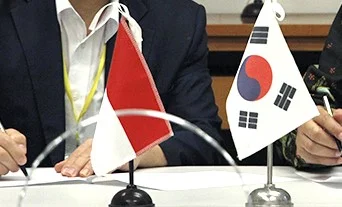Mind the Gap! Bridging the chasm between generating interest and securing investment
/International interest in Indonesia as a regional and global investment hotspot is clear for all to see. Week after week, delegations of international business groups arrive one after the other in Jakarta and other major cities to scope out the enormous opportunities Indonesia has to offer. There is no shortage of companies willing to invest time and money coming here to find out more about these business opportunities and to build relations.
So, investor interest is not in doubt. And yet, in most cases, these visits are not translating into actual investment. BKPM (Indonesia’s Investment Coordinating Board, responsible for facilitating bilateral trade links and promoting inward investment opportunities) recently launched a “debottlenecking” initiative designed to address 100 cases, where planned investment projects have been not been implemented due to licensing, permitting or other regulatory and administrative issues. These are not isolated cases – many companies have identified potentially feasible projects and yet have been unable to proceed with an actual investment. So what are the main root causes of these bottlenecks and how can the gap between interest and investment be bridged?
Licencing requirements and timeframes: in many areas of investment, licencing requirements are still very burdensome. In the electricity sector, for example, there are 52 licences that collectively take over 900 days to be processed – the target here is to reduce the total processing time by more than 300%. In terms of coordinating the licencing process, BKPM’s new One-Stop-Service (OSS) Centre is helping to relieve the burden on investors in terms of submitting and processing various licences and permits, and the eventual roll out of the OSS across all of Indonesia’s provinces and districts should be a welcome development.
The regulatory climate: while last year’s “Negative Investment List” opened up greater opportunities in some sectors and lines of business, such as pharmaceuticals manufacturing, many foreign companies in key cross-sectoral areas, such as distribution, now face major ownership limitations. Decrees, regulations and indicative policy announcements, ranging from restrictions on temporary work permits and the sale of bottled water to a recently-announced ban on alcohol sales in small stores, leave many in the international investment community concerned about the Indonesian government’s direction of travel when it comes to the regulatory climate for investment.
The availability and reliability of technical data: obtaining comprehensive and reliable data can also be an issue in certain sectors. In the field of renewable energy, for example, there have been cases where the estimated electrical output potential of a given site has been repeatedly revised downwards. While some companies conduct their own feasibility studies to obtain accurate data, other potential investors are seeking ready-to-go, verified and data-sound projects, in which they can invest.
GENERATING INVESTMENT COMMITMENTS IS ONE THING - CONVERTING THEM INTO REALISED PROJECTS AND ENSURING THEY DON'T FALL BETWEEN THE GAP REQUIRES CONSIDERABLY MORE EFFORT.
PHOTO COURTESY OF WELLPUTWORDS.CO.UK
Efforts are being made to improve the investment environment on these and other fronts and, barring any major economic or political shockwaves, investor interest in Indonesia is unlikely to decline to any great degree any time soon. Yet, as the countries of the ASEAN region draw closer together with the anticipated creation of the ASEAN Economic Community (AEC) during 2015, the options for investors will be greater than ever when it comes to their ASEAN location strategies and no country – not even the region’s powerhouse – can afford to be complacent.
This post is based on a blog piece I recently wrote as a team member of the EU-Indonesia Trade Cooperation Facility.









